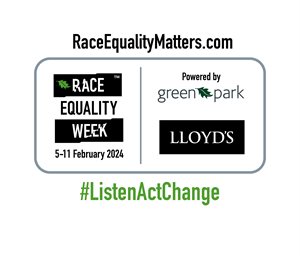Staffnet+ >
Race Equality Week 2024:Day 3 - Public Praise
Race Equality Week 2024:Day 3 - Public Praise
 Do you praise some people more than others?
Do you praise some people more than others?
Today's Eye-Opener - 30 Seconds
If someone does something well in the workplace, do you publicly praise them regardless of their race?
-
I often praise colleagues publicly in the workplace, regardless of their race.
-
I often praise colleagues privately in the workplace, regardless of their race.
-
I praise ethnically diverse colleagues publicly less often than others.
-
I praise ethnically diverse colleagues privately less often than others.
-
I rarely/never praise anyone.
-
I rarely/never praise ethnically diverse colleagues.
Public recognition is the most high-impact form of employee recognition and creates a lower turnover in the workplace (HR online, 2019).
A recent survey by ApolloTechnical found that over 91% of HR professionals believe that recognition and reward make employees more likely to stay.
Additionally, a study by the Institute of Leadership and Management asked 1,000 employees across the UK to identify one thing that motivates them to do more at work and 31% of them said ‘better treatment from their employer’, ‘more praise’ and ‘a greater sense of being valued’. These studies show just how impactful public praise in the workplace can be.
However, ethnically diverse colleagues can often feel as if they have to work harder than other colleagues to be publicly recognised. For example, a research study from Coqual in 2022 found that more than three in four Black UK professionals felt as if they had to work harder than others to advance within their company.
The Halo Effect is a term used to describe how, at times, different characteristics individuals have, whether that be their qualifications or their interests, may make them more or less likely to receive public recognition or positive appraisals.
This shows us that our biases, whether intentional or not, can influence how we treat our colleagues. This is why it’s important to publicly praise colleagues fairly!
There is also a correlation between being publicly praised and promotions, opportunities, and career development.
-
Action - 2 Mins
When we recognise ethnically diverse colleagues for their hard work, it shows that their efforts in the workplace are not ignored but are instead valued. It also creates a pathway for promotion and development. For many ethnically diverse employees it is a rare experience and will have an impact on their confidence and wellbeing and make them feel less invisible.
How could you publicly praise your colleagues in the workplace? Ideas:
- Ensure there is a standard that all colleagues are held to and when you see an ethnically diverse colleague exceeding expectations, publicly acknowledge this (maybe in a team meeting).
- Pay attention, notice your ethnically diverse colleagues too and make sure they are recognised. A way to do this is by giving yourself the task to publicly say ‘I see how great you’re doing’. Ensure that your praise holds value - highlight what they did well - so everyone else in the team can learn what good looks like.
- Consider whether an employee of the month scheme would work, where employees can nominate each other and publicly speak about each other’s achievements.
- If you see an ethnically diverse colleague who has a particular working style that you like, don’t be afraid to tell them that you are impressed by it and ask how you can learn from them.
- Cover the blind spots: If you think a particular ethnically diverse colleague is consistently doing a lot of good work that your manager hasn’t noticed, don’t be afraid to mention it to your management and encourage them to publicly acknowledge it.
- When opportunities come up, mention an ethnically diverse colleague who isn’t normally selected and share the value they will bring.
- Never take credit for the work of others, doing so is demotivating and will not support constructive and meaningful relationships in the workplace. It also undermines trust and can make people feel de-valued.
Here is one action you can take as a senior leader:
Lead by example. Promote a work culture where everyone recognises the achievements of others. Ask your direct reports how they would like to be recognised and get them to do the same to those they manage.
Additional Resources
Race Equality Matters Resources